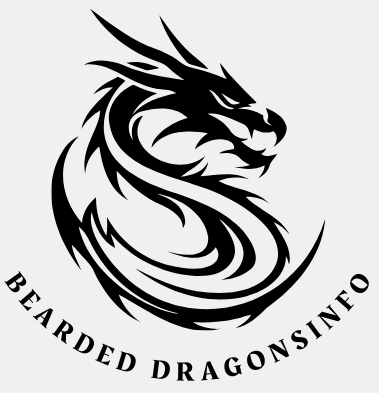Brief Answer
No, bearded dragons should not eat coconut. It has too much fat and sugar, which can upset their stomach and isn’t good for their health. Stick to safer fruits and vegetables for your pet.
Detailed Answer
Coconut is a popular tropical fruit, and you might wonder if your bearded dragon can eat it. While coconuts are tasty for humans, they might not be the best choice for your beardie.
In this article, ” can bearded dragons eat coconut? ” I will explain whether bearded dragons can safely eat coconut, what benefits or risks it has, and what to consider before feeding it to your pet.
Let’s examine the specifics and determine why.
Understanding Bearded Dragons’ Natural Diet

In the wild, bearded dragons primarily eat insects, leafy greens, and occasional fruits. Their diet is designed to meet their specific nutritional needs, providing them with high levels of protein, calcium, and vitamins.
Their digestive systems are not equipped to handle every type of food humans consume, which is why their diet needs to be carefully managed.
Is Coconut Safe for Bearded Dragons?
Coconut is known for its rich flavor and high-fat content, but when it comes to bearded dragons, this can be more of a drawback than a benefit.

While it contains some vitamins and minerals, it is not nutritionally aligned with what a bearded dragon needs.
Coconut is high in fat and can be tough on a bearded dragon’s digestive system, potentially leading to issues like diarrhea or digestive discomfort.
Risks of Feeding Coconut to Bearded Dragons
1. High Fat Content
Coconut is loaded with fat, which can be a problem for bearded dragons. Their natural diet is low in fat, and feeding them fatty foods like coconut regularly could lead to obesity or other health problems.
2. Digestive Issues
Bearded dragons don’t have the digestive enzymes needed to process large amounts of fat or fibrous foods like coconut. This can lead to digestive blockages or other gastrointestinal problems.
3. Dehydration
Coconut can absorb water in the digestive tract, which can potentially cause dehydration. This is especially concerning because bearded dragons already struggle with hydration and need to maintain a delicate balance of moisture in their bodies.
Coconut as an Occasional Treat
If you’re still keen on feeding your bearded dragon coconut, it should only be as an occasional treat. It’s not toxic, but moderation is key.
Make sure the portion size is small, and only offer it once in a while to prevent any negative effects on their health.
Coconut Meat vs. Coconut Water
While coconut meat contains fiber and fat, coconut water is mainly liquid and contains sugars and electrolytes. Neither is particularly suited for bearded dragons, but if you had to choose, coconut water in tiny amounts might be the safer option.

It’s less likely to cause digestive issues but still doesn’t offer much in terms of nutrients.
Do Bearded Dragons Like Coconut?
Bearded dragons have distinct dietary preferences.
Some might enjoy the taste of coconut, but it’s not a common preference. If your dragon doesn’t seem interested in coconut, it’s probably for the best, given its limited nutritional benefits.
How to Feed Coconut to Bearded Dragons
If you decide to offer coconut, follow these steps:
- Preparation: Make sure the coconut is fresh and free from any added sugars or preservatives.
- Small Pieces: Cut the coconut meat into very small, manageable pieces.
- Offer Sparingly: Give only a small portion, and observe how your dragon reacts to it.
- Monitor Health: Keep an eye on their digestion and behavior after eating coconut. If any issues arise, discontinue immediately.
Alternatives to Coconut for Bearded Dragons
Instead of coconut, consider fruits like blueberries, strawberries, or papaya. These fruits are safer, lower in fat, and packed with essential vitamins and minerals that bearded dragons can actually benefit from.
How to Spot Dietary Problems in Bearded Dragons?
Look for signs like a lack of appetite, diarrhea, lethargy, or bloating. These could be signs that your dragon isn’t handling a particular food well. If you notice any of these symptoms after feeding coconut or any new food, it’s important to consult a vet.
Consulting a Vet Before Dietary Changes
Before adding any new food to your bearded dragon’s diet, it’s always a good idea to check with a veterinarian. They can help assess whether the food is safe and how it fits into your pet’s overall nutritional plan.
Conclusion
So, can bearded dragons eat coconut? While it’s not toxic, it’s not the best food for them. The high-fat content and potential digestive issues make it an occasional treat at best. Bearded dragons have specific dietary needs, and coconut doesn’t quite fit the bill.
Stick to more appropriate foods like leafy greens, insects, and low-sugar fruits to keep your dragon healthy and thriving.
FAQs
1.Can baby bearded dragons eat coconut?
It’s best to avoid feeding coconut to baby bearded dragons as their digestive systems are even more sensitive than adults.
2.What happens if my bearded dragon accidentally eats coconut?
If your bearded dragon eats a small amount of coconut, it’s likely not harmful. However, watch for any signs of digestive distress.
3.Can coconut oil be used for bearded dragons?
Coconut oil is not recommended for bearded dragons. It’s high in fat and doesn’t provide any substantial health benefits.
4.Is coconut shell safe for bearded dragons to chew on?
No, coconut shells can be too hard and may cause injury or digestive blockages if ingested.
5.Are there any health benefits of coconut for bearded dragons?
There are minimal benefits, and the risks generally outweigh them. It’s better to stick to more nutritious, dragon-friendly foods.
6. Can Bearded Dragons Eat Coconut?
Bearded dragons should not eat coconut due to its high fat content and potential digestive issues. Stick to safer foods.


1 thought on “Can Bearded Dragons Eat Coconut? A Comprehensive Guide in 2024”